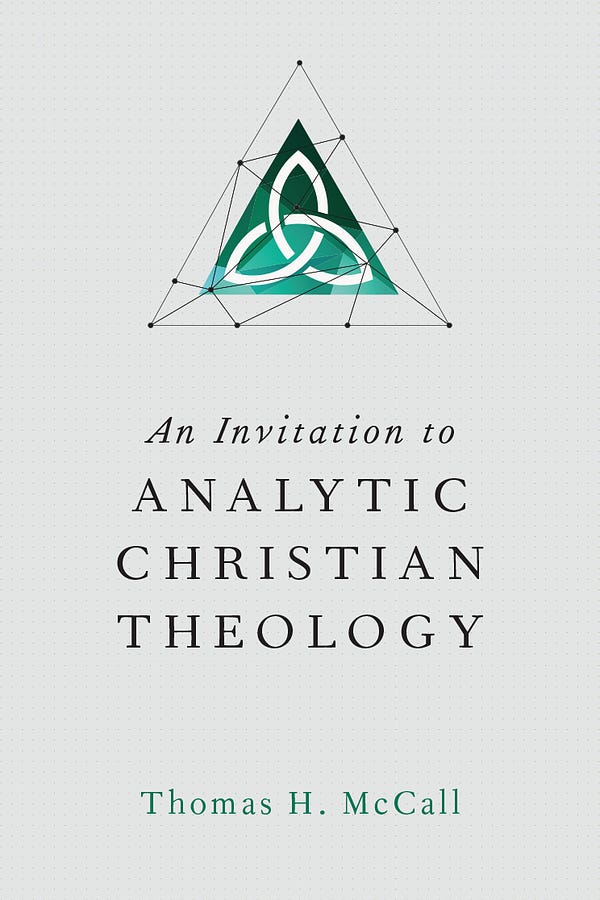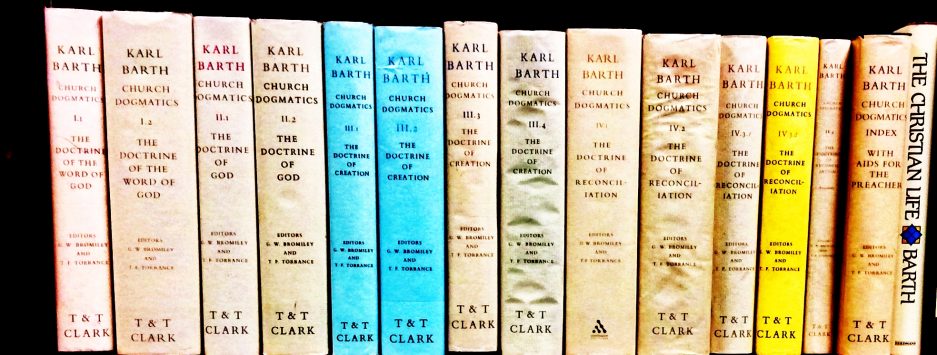This is a guest review from Ben Nasmith, an excellent young theologian and current student at Briercrest Seminary. Be sure to check out Ben’s own blog, Meta-Theology Quarterly, as well. Disclaimer: I received this book as a free review copy from IVP which I’ve asked Ben to review.
– —————-
—————-
As an interdisciplinary field, analytic theology faces trouble from the start. Few people posses both the needed theological erudition and general competence in analytic philosophy. Those with one often mistrust those with the other. As such, most philosophers and theologians are non-specialists when it comes to analytic theology. Thomas McCall aims to bring us up to speed with his new book: An Invitation to Analytic Christian Theology (IVP, 2015).
Some theologians associate analytic theology with Christian analytic philosophy. That field tends to major on prolegomenon, like the existence of God or the rationality of theism. By association, analytic theology seems inseparable from conservative apologetics, natural theology, and a general naiveté of the history of doctrine.
McCall assures us that this is not the case. The analytic method could just as easily serve liberation theology, Barthian theology, or an analysis of the patristics. The analytic method must be distinguished from the content of typical Christian philosophical work.
McCall practices some analytic theology in his book. He address a variety of theological topics, including perfect being theology, scripture as “revelational control” for theology, D.A. Carson’s compatibilism, the metaphysics ofincarnation Christology, the historical Adam, and evolution vs. creationism. McCall also discusses various challenges facing analytic theologians. These include the broad competencies required to practice analytic theology and the ever present danger of intellectual pride.
All told, this book offers an informative introduction in the analytic style to a variety of questions. I for one value analytic theology. I am thankful for this book and excited to see the field grow. However, I have some concerns that McCall does not address to my satisfaction. I’ll outline these below, along with a way forward based on my reading of Christian analytic philosopher Paul K. Moser.
First, McCall is quick to praise the virtues of the analytic method and slow to warn of its vices. He likens analytic theology to scholasticism without addressing scholasticism’s shortcomings. The analytic method is a worthy servant but a poor master. If analytic theology is “attuned to and committed to the ‘goals and ambitions’ of analytic philosophy,” it would be prudent to question whether those goals and ambitions serve theology well.
Theology as mere truth-seeking about God would face no conflict in a marriage to analytic philosophy. But theology cannot be so reduced. Theology seeks todiscern the word of God and articulate it. This word, and its existential freight, is impatient toward mere inquiry for inquiry’s sake. The analytic theologian must remember that their method is a tool and not a telos. The goal of theology is personal and corporate knowledge of God rather than systematic knowledge about God.
Second, McCall only briefly addresses concerns about metaphysics in theology. He notes that analytic theologians are unmoved by Kant’s critique. Paul K. Moser offers a stark contrast in his book Philosophy After Objectivity.Moser warns against waging “losing battles against ontological agnostics” (58). We face an “inescapable human cognitive predicament,” namely, we cannot confirm that our cognitive processes reliably grant us access to conceiving-independent reality without begging the question of their reliability (43). They may in fact deliver knowledge of conceiving-independent reality, but we cannot confirm this. “What is intelligible for us can . . . outstrip what is effectively answerable or testable by us” (57).
Christianity depends on de re encounter with God rather than mere de dicto assertions about God. If metaphysics is beyond our grasp as an experimentalsubject, what do we gain from it? Although we cannot escape from usingmetaphysics, we also cannot discern whether we posses the correctmetaphysics with certainty. Analytic theologians ought to take this predicament, and the agnostics who raise it, seriously.
Third, McCall very briefly addresses a concern raised by Stephen R. Holmes, who writes, “analytic discussions . . . seem generally to proceed with a remarkable confidence about the success of language in referring to the divine” (32). This concern relates to Moser’s objection to metaphysics. Our theological notions may successfully refer to the realities they address, but we cannot know for certain that they do.
Theology is therefore irreducibly perspectival — namely, from a human perspective. We cannot silence the ontological agnostic until we grant their point. Analytic theology should acknowledge this and proceed with appropriate humility. It should do so without sacrificing its other virtues, such as clarity and coherence.
How do we proceed? Moser warns against the “myth of the definite article” (8). Namely, we must not confuse our preferred notion of X (divinity, for example) with the objective notion of X. We employ our theological notions with various purposes in mind. Having granted to the ontological agnostic that we cannot discern whether our notions are the objective ones, we are free to proceed with a perspectival analytic theology. Our notions serve our purposes, not the purposes of the ontological agnostic.
This approach should allay the concerns of those who fear that analytic theology cannot do justice to the subject matter of theology — the transcendent God. A humble analytic theology, I think, could do theology a great service. It could treat the analytic method as a means rather than an end. It could acknowledge that theology is irreducibly perspectival (at least from the human perspective). Finally, it could admit that our theological notions are relative to our purposes as theologians. As we seek to discern God’s purposes for our theology, and adopt them as our own, we can adapt our notions and systems accordingly. Like the “hermeneutical circle,” analytic theologians may discern God’s purposes with greater clarity as they allow those purposes to govern their inquiry.


 A friend passed on a neat little book entitled,
A friend passed on a neat little book entitled,